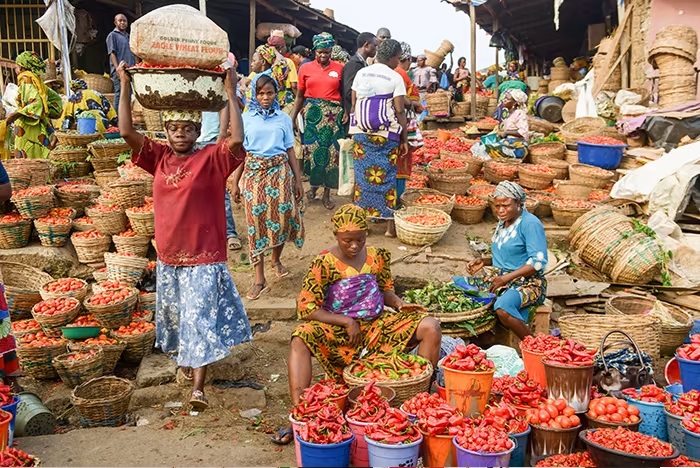
Nigeria, a country grappling with deep-seated issues of poverty and insecurity, is facing a looming food crisis that threatens millions of its citizens.
According to Temitope Fadeshemi, the Permanent Secretary at Nigeria’s Federal Ministry of Agriculture and Food Security, an alarming 88.4 million Nigerians currently live in extreme poverty. Fadeshemi disclosed this sobering statistic while overseeing the distribution of farm inputs and empowerment materials to 250 smallholder farmers in Kaduna.
Bashir Abdulkadir, representing Fadeshemi at the event said: “The level of poverty in Nigeria is alarming. An estimated population of 88.4 million people in Nigeria is living in extreme poverty.
Register for Tekedia Mini-MBA edition 19 (Feb 9 – May 2, 2026): big discounts for early bird.
Tekedia AI in Business Masterclass opens registrations.
Join Tekedia Capital Syndicate and co-invest in great global startups.
Register for Tekedia AI Lab: From Technical Design to Deployment (next edition begins Jan 24 2026).
“The number of men living on less than 1.90 U.S. dollars a day in the country reached around 44.7 million, while the count was at 43.7 million for women.
“Overall, 12.9% of the global population in extreme poverty was found in Nigeria as of 2022.
“This is why the Federal government of Nigeria through the Federal Ministry of Budget and National Planning in collaboration with FMAFS is making conscious efforts at reducing the spate of poverty across the country.”
Abdulkadir highlighted the disparity, revealing that approximately 44.7 million men and 43.7 million women survive on less than $1.90 per day. Nigeria, he lamented, accounts for 12.9% of the global population living in extreme poverty.
To address this crisis, Nigeria has embarked on the National Poverty Reduction with Growth Strategy (NPRGS) initiative. Fadeshemi hailed NPRGS as a crucial step in uplifting smallholder farmers and promoting sustainable agricultural practices. He said that the program signifies an investment in the nation’s future, recognizing farmers as the backbone of Nigeria’s prosperity.
The initiative, in collaboration with the Federal Department of Agricultural Extension Service, has identified and validated 250 farmers for participation. Fadeshemi stressed that NPRGS reflects the government’s commitment to eradicating poverty by empowering farmers with the necessary knowledge and resources to thrive.
Timkat Nanfa, the State Coordinator of the ministry, expressed gratitude for the federal government’s support and urged participants to maximize the empowerment resources. The distributed items, including organic fertilizers, seeds, poultry, and fish feeds, aim to enhance farm operations and alleviate poverty.
However, despite these efforts, Nigeria faces a daunting food security challenge, particularly in its northern states. The latest Food Security Report by the World Bank predicts severe food crises in seven northern states in 2024, including Adamawa, Borno, Kaduna, Sokoto, Yobe, and Zamfara.
“It is projected that most areas in West and Central Africa will remain Minimally food insecure (IPC Phase 1) until May 2024, with some being categorized as Stressed (IPC Phase 2). Nigeria (far north of Adamawa, Borno, Kaduna, Katsina, Sokoto, Yobe, Zamfara states) will be at Crisis food security levels (IPC Phase 3), mostly because of persistent insecurity and armed conflict and deteriorating livelihoods,” the report stated.
Factors such as persistent insecurity, armed conflict, and deteriorating livelihoods exacerbate the situation.
The report warns that Nigeria’s far north will experience crisis-level food insecurity, primarily due to insecurity and armed conflict. Inaccessible areas, such as Abadam, Bama, Guzamala, and Marte, have reached emergency food security levels. The conflict has already left 4.4 million people food insecure in Borno, Adamawa, and Yobe states, according to the World Food Programme.
In addition to insecurity, Nigeria grapples with soaring inflation, further straining food access for vulnerable populations, particularly internally displaced persons. The activities of bandits and terrorists displace communities, disrupt farming activities, and exacerbate food insecurity.
World Bank said urgent action is imperative to mitigate the impending food crisis. Sustainable strategies that address poverty, insecurity, and agricultural development have long been advocated to safeguard the well-being of millions of Nigerians and ensure food security for the nation’s future.



